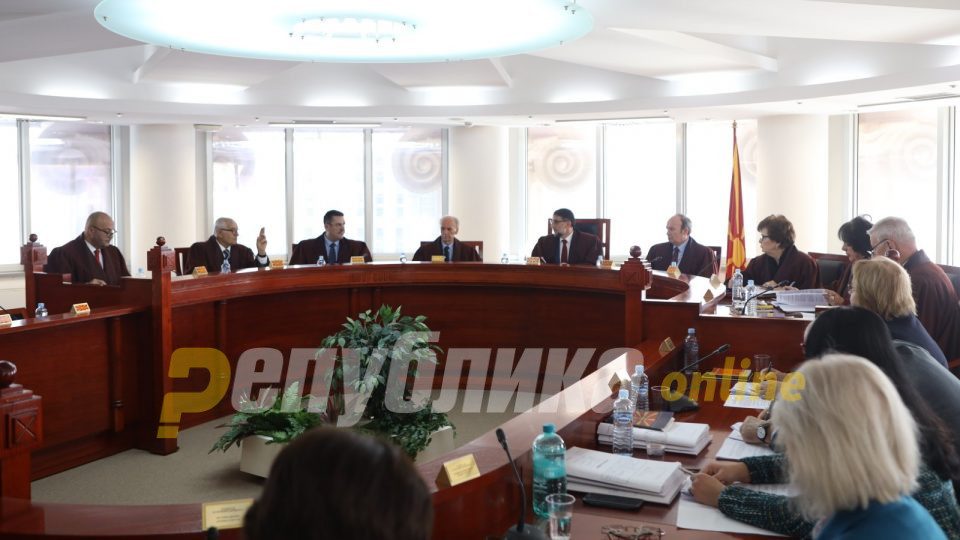The justices of the Constitutional Court quickly ended today’s session when they were expected to decide on the 2016 pardons given by President Gjorge Ivanov.
The court, divided 4-4, could not decide on the agenda for the day. Judge Osman Kadriu wanted to remove the proposal to discuss the pardons from the agenda, and the vote was evenly split. Judge Jovan Josifovski then asked the court to vote on the agenda, and again there was no decision, leaving the court deadlocked. The pardons are again becoming a key political issue after the European Court of Human Rights raised a case against Macedonia.
President Ivanov gave pardons to dozens of political officials, activists, their relatives.., after a flood of charges, mainly from the Special Prosecutor’s Office (SPO), a now completely discredited institution formed on the urging of the SDSM party and its international backers. President Ivanov said that the charges initiated by SPO and its chief Katica Janeva are meant to pressure Macedonian decision makers into accepting a deeply unfavorable name and identity change – a prediction which the nation later saw play out. Ivanov said that with the pardons he will liberate the political elite of Macedonia and allow it to decide independently.
Under international pressure, a new law was adopted to allow the recipients of the pardons to give them back, which they did. But as the trials became more and more of a farce, some of the recipients of the pardons asked the court to rely on the principle that a presidential pardon, once given, can’t be revoked. This issue is now before the ECHR, and a decision by the Constitutional Court could preempt a potentially humiliating decision in the ECHR.
The ruling SDSM party and its supporters in the Constitutional Court want to keep the pardons off the table – SDSM is openly using the trials initiated by Janeva for its continued blackmail of many former VMRO-DPMNE officials. A number of VMRO officials who were charged by Janeva, or other prosecutors linked to SDSM, voted for the imposed name change in Parliament, or are currently busy creating divisions in VMRO, helping SDSM reduce the pressure from its own very unstable ruling coalition that has a wafer thin majority in the Parliament. SDSM is currently desperately trying to bolster its majority in the court, by nominating one of their most outspoken loyalists in the judiciary to the position.





Comments are closed for this post.